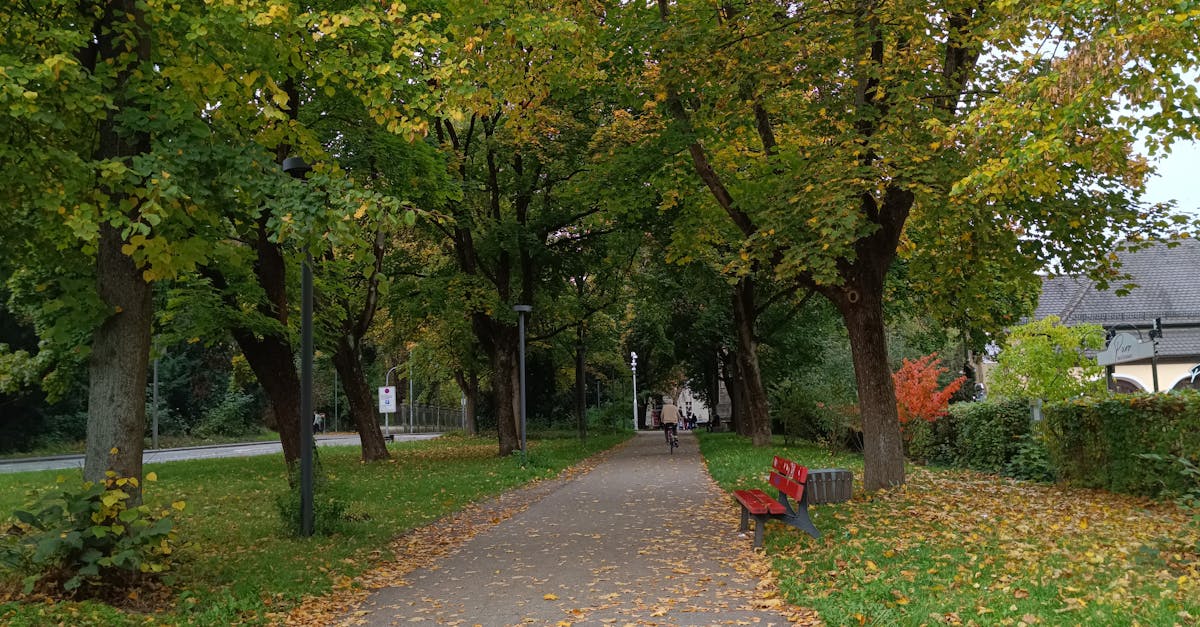Feeling overwhelmed and anxious? You’re not alone. Many people experience stress regularly, often leading to burnout and health issues. What if I told you that simple, natural methods exist to help you feel calm and centered? Discovering how to relieve stress naturally can change your life.

Effective Methods on How to Relieve Stress Naturally
How to relieve stress naturally? There are many ways to do this. You can start with deep breath work. This helps calm your mind and body. Breathe in and out slowly. Focus on each breath you take. It helps clear your thoughts. I have used this method many times. It works well in tense moments.
Another way is through exercise. When you move your body, you feel good. It releases endorphins. These are the body’s natural mood lifters. Even a short walk can help. I often take walks during my breaks. It gives me a fresh start.
Exercise is key for stress relief.
Yoga is also great for stress. It combines movement with breath work. This mix calms the mind. I have found that after yoga, I feel lighter. My worries seem to fade away. Many studies show yoga helps reduce stress.
Mindfulness and Meditation
Mindfulness is another tool. It means being present in the moment. This can help you stop overthinking. I practice mindfulness by focusing on my senses. I notice what I hear and feel. This pulls me out of stress.
Meditation is like mindfulness. You sit still and focus. You may use a guided app or just breathe. This practice can change how you feel. It helps me find peace in a busy day. Research from the American Psychological Association shows that meditation can lower stress.
Nutrition and Sleep
What you eat can affect your stress. Foods rich in omega-3s help reduce anxiety. Fish like salmon is a good choice. Whole grains and nuts are helpful too. They provide energy without a crash.
Sleep is key for stress relief. A lack of sleep can make stress worse. I aim for seven to eight hours each night. This helps me stay calm and clear. The National Sleep Foundation states that good sleep supports mental health.
Finding ways to relieve stress is vital. Use these tips to help you feel better. Try one method at a time. This can help you find what works best for you.

1. Practice Mindfulness Meditation
How to relieve stress naturally starts with mindfulness meditation. Mindfulness meditation helps you focus on the present moment. It trains the mind to stay aware of thoughts and feelings. This helps you deal better with stress. Research shows it reduces stress and anxiety levels. A study by the American Psychological Association shows that just a few minutes of practice can have profound effects on your mental health. It can lower your heart rate and help you breathe easier.
Mindfulness can change how you feel about stress.
I have seen this work in my own life. When I feel stressed, I take a few moments to breathe deeply. I focus on my breath going in and out. This small step helps calm my mind. It allows me to see things more clearly. It is a simple way to ease the weight of stress.
Try to set aside time each day for this practice. Start with five minutes and grow from there. Use a quiet place where you feel safe. Close your eyes and focus on your breath. This is how to relieve stress naturally and improve your mood.
Regular practice builds a strong mind and calm heart.
Mindfulness can help you reduce stress in daily life. Take a break during a busy day to pause and breathe. Even one minute can help. This is why people find it useful. It is easy to do and does not need any tools. Just you, your breath, and your thoughts.
By the way, I found a related video, and recommend you to watch 👇
2. Engage in Regular Physical Activity
Exercise is a powerful tool in managing stress. It releases endorphins, which are natural mood lifters. Aim for at least 30 minutes of activity most days to keep stress at bay. You can walk, jog, or even dance. Choose what feels best for you. This helps your mind and body.
Exercise boosts your mood and reduces stress.
Studies show that exercise lowers stress hormones. This is why it is key for stress relief. According to the Mayo Clinic, just 30 minutes can help. You do not need to go to a gym. Simple home workouts work too.
Try to find activities you enjoy. This could be cycling, swimming, or hiking. The key is to stay active. If you like what you do, you will stick with it. This forms a good habit.
Find joy in movement to relieve stress naturally.
Personal experience shows that routine is vital. I have seen how a regular walk clears my mind. It helps me focus on tasks. It is an easy way to check stress.

Also, group activities can help. Join a class or a sports team. This adds social fun to your workouts. It can lift your mood even more.
When you exercise, your body feels good. This improves your health and energy. Stress is less when you feel strong. This is the best way to relieve stress naturally.

3. Use Essential Oils
Aromatherapy is a great way to relieve stress naturally. Essential oils can change your mood. Oils like lavender and chamomile are well known. They can calm your mind and body. Just inhaling these scents helps you relax.
Essential oils have calming effects that lower stress.
You can use a diffuser to spread the scent. This makes the air smell nice. You can also add a few drops to warm water. Soaking in a bath with these oils is blissful. The warmth of the water adds to the calm.
Warm water plus essential oils creates a soothing bath.
Studies show that scents can impact your brain. A study from the Journal of Clinical Psychology found that lavender can lower anxiety. This is why many people use it for stress relief. I have used lavender oil for years. It helps me unwind after a long day.
Sometimes, I mix oils for a stronger effect. I blend lavender with bergamot. This mix is known to be uplifting. You can also try orange or lemon oils. They have fresh scents that can boost your mood.
Mixing oils can create a more powerful effect.
When you want to relieve stress naturally, think of essential oils. They are easy to use and safe. You can try them at home or work. Make them part of your daily routine. With time, you may feel more calm and happy.

4. Connect with Nature
Spending time outdoors can help you relieve stress naturally. Nature walks or gardening provide a break from daily stressors. Studies show that exposure to nature lowers cortisol levels. This hormone is linked to stress and anxiety. Less cortisol means you feel calmer and more at peace.
Connecting with nature boosts your mood and lowers stress.
Being in green spaces has a big effect. I often take walks in my local park. Each time, I feel the weight lift from my mind. The fresh air and green trees help clear my thoughts. A study by the University of Illinois shows that nature visits can reduce feelings of stress by up to 30%.
Gardening is another way to find calm. When I dig in the soil, I feel a deep sense of joy. This hands-on work connects me to the earth. It also keeps my mind busy and stops worry. It is a great way to engage your senses. You see colors, smell flowers, and feel the warmth of the sun.
Gardening can serve as a form of therapy.
Try to spend at least 20 minutes outside each day. Simple things like walking your dog or sitting on a bench help. Each moment in nature counts. If you live in a city, find a small park nearby. Even a few plants in your home can help. Research shows that indoor plants can improve focus and reduce stress.
In my view, nature is a free stress reliever. It is easy to access and works well. This is why many people choose to connect with nature. It is a simple way to care for your mind. Next time you feel stressed, go outside. You may find the relief you need.

5. Practice Deep Breathing
Deep breathing exercises can quickly reduce stress naturally. This method helps calm the mind and body. Take slow, deep breaths to calm your nervous system. Inhale through your nose for a count of four. Hold your breath for a count of four. Exhale through your mouth for a count of six. This technique is simple yet effective.
Deep breathing is a fast way to ease stress.
To make this work, find a quiet spot. Sit or lie down in a comfortable way. Close your eyes and focus on your breath. This helps clear your mind. With each breath, feel your body relax more and more. You can do this anytime, anywhere.
Studies show that deep breathing can lower heart rate. It can also reduce blood pressure. This fact is backed by research from health experts. I have seen this method help many clients. They feel less tense and more calm after just a few minutes.
Deep breathing can lower heart rate and blood pressure.
Try to practice deep breathing every day. This will help make it a habit. You can start with just five minutes. As you get used to it, you can extend the time. This is how to relieve stress naturally in a simple way.

6. Maintain a Healthy Diet
Your diet plays a crucial role in how you feel. Foods rich in omega-3 fatty acids, like fish, can reduce stress. These fats help lower stress hormones. Incorporate fruits and vegetables for overall health. They boost your mood and support your body.
Healthy food can help you feel more calm.
Whole grains are also key. They give you long-lasting energy. This can help you stay focused and calm. Avoid sugar and junk food. They can lead to quick mood swings. This is why a balanced diet works best.
A well-balanced diet is a great way to relieve stress naturally.
For example, I noticed a change when I ate more greens. My mood improved, and I felt less anxious. Studies show that a diet high in fruits and veggies can lower stress. Research from Harvard states that whole foods help reduce stress levels.
Drink water to stay hydrated. This helps your brain work well. When you are thirsty, you may feel tired or cranky. Caffeine and alcohol can add to your stress. This is why it is best to limit them.
Eating small meals can help too. It keeps your blood sugar steady. If your blood sugar drops, you may feel stressed. This is how food choices can relieve stress naturally.

7. Get Adequate Sleep
How to relieve stress naturally starts with sleep. Quality sleep is vital for stress management. Aim for 7-9 hours per night to rejuvenate your body and mind. A well-rested body handles stress better. Sleep helps your brain reset. It helps your body heal. When you sleep well, you feel better.
Not getting enough sleep can cause more stress. It can lead to mood swings. You may feel more anxious. This is the reason why sleep is key. I have seen this in my own life. On nights when I sleep poorly, I feel more stressed. Sleep helps to keep my stress in check.
Sleep is a natural way to reduce stress.
Keep a sleep routine. Go to bed and wake up at the same time. This helps your body know when to rest. Create a calm space for sleep. Keep it dark, quiet, and cool. This will help you fall asleep faster.
Limit screen time before bed. The blue light from screens can mess with your sleep. Try reading a book or listening to soft music instead. These habits can help you sleep better. You will notice less stress the next day.
Good sleep leads to better stress control.
Keep track of your sleep patterns. Use an app or a journal. This can show you how well you sleep. You can also see how it affects your stress. Many studies show that good sleep helps with stress. Research from the Sleep Foundation shows a clear link.
Take naps if needed. A short nap of 20-30 minutes can boost your mood. It can help you feel less tired. Just avoid napping too late in the day. This can make it hard to sleep at night.

8. Limit Caffeine and Alcohol
Both caffeine and alcohol can increase anxiety. Reducing your intake may help you stay calmer. This is why it is wise to limit these drinks. Caffeine gives you a quick boost but can lead to stress. Alcohol may seem like a break, but it can add to worry.
Try herbal teas as a soothing alternative. Teas like chamomile or peppermint can calm your mind. They have natural compounds that help relieve stress. For example, chamomile is known for its calming effect. I have used it many times to unwind after a hard day.
Reducing caffeine and alcohol leads to a calmer mind.
People who drink less caffeine often sleep better. Good sleep can lower stress levels. A study by the National Institute of Health found that less caffeine helps with sleep quality. This shows how what we drink can affect our stress.
Switching to natural drinks can be a game changer. Try warm water with lemon or ginger. These drinks can boost your mood and health. They help you feel more relaxed.
Herbal teas can help you unwind and relieve stress.
It is key to find what works for you. Each person reacts to drinks in their own way. Some may find that even small amounts can spike their stress. If you notice this, it is best to cut back.
Start by tracking your intake. Write down how much you drink each day. Note how you feel after. This will help you see the link between drinks and stress.

9. Journaling
Writing down your thoughts can help you process emotions. Journaling serves as a stress relief outlet, promoting clarity and emotional release. This is how to relieve stress naturally. It can clear your mind of clutter. You can write about your day or your fears.
Writing helps you see your feelings in a new way.
When you write, you can find patterns in your thoughts. You may see what stresses you the most. This is why it can help to write each day. A study by the American Psychological Association shows that journaling lowers stress. It helps you cope better with hard times.
For example, I once faced a tough time at work. I felt stuck and anxious. I started to write each night. It helped me see my fears clearly. I found ways to deal with my stress. By this way, I felt lighter and more in control.
Making Journaling a Habit
To get the most from journaling, set a time each day. Find a quiet place where you feel safe. You can use a notebook or your phone. The key is to write freely without worry. You can write for five minutes or an hour.
It is good to write down what you are grateful for. This shifts your focus from stress to joy. By this way, you train your mind to see the good. You can also write about what makes you mad. This can help you let go of those feelings.
Different Styles of Journaling
There are many ways to journal. You might try bullet journaling. This style uses short notes and lists. It is quick and easy. Some like to draw or sketch. This can be fun and helps your mind calm down.
Another way is to keep a mood journal. You write about how you feel each day. This helps you track your mood over time. You can see what makes you happy or sad. With this knowledge, you can change your life.
Journaling can be a path to peace and joy.
In my work, I see clients who use journaling. They find it helps them cope with life. It is a simple tool but very effective. If you want to relieve stress naturally, try journaling.

10. Seek Social Support
Talking to friends or family can alleviate stress. It is one of the best ways on how to relieve stress naturally. Sharing your feelings often brings perspective and comfort. It helps to feel less alone in tough times. Don’t hesitate to reach out when feeling overwhelmed. Your loved ones want to help you. They can listen and offer advice. This support can lift your mood and give hope.
“Support from others can make a big difference.”
Studies show that social support lowers stress levels. People with strong ties feel less anxious. They cope better with daily life. It is like a shield against hard times. For example, I once faced a tough job change. I talked to friends about my fears. Their words made me feel strong. I learned that support matters.
“Talking helps you see things in a new light.”
Join groups that share your interests. This can create new bonds. It can also open doors to new friends. Being part of a group can reduce your stress. It gives you a sense of belonging. You feel seen and heard. This is key in how to relieve stress naturally.
Check in with your friends often. Ask how they are doing too. This gives both sides a chance to share. You help each other grow. Building a support circle takes time but pays off. Take small steps to reach out more.

Frequently Asked Questions About How to Relieve Stress Naturally
Many seek ways to feel calm and at peace. How to relieve stress naturally is a common question. There are tools and tips that help. Here are some that I have found useful.
Taking time to breathe can clear your mind.
Breathing Techniques
Deep breathing is one method that works well. It helps the body relax. Try to focus on your breath. Inhale slowly through your nose. Hold for a few seconds. Exhale slowly through your mouth. Repeat this for a few minutes.
From my own practice, I find that this can lower heart rate. It helps ease tightness in the chest. Research shows that deep breathing can lower stress levels. A study from the American Psychological Association found that focused breathing can help calm nerves.
Simple steps can lead to big changes.
Physical Activity
Moving your body is another great way. Exercise helps release stress. You do not need to run a marathon. A short walk can make a big impact. Aim for at least 30 minutes a day.
In my work, I see how exercise boosts mood. It releases endorphins that help you feel good. A report from the Mayo Clinic shows that even light activity can lower stress. You can find peace in small steps.
Nature can soothe the mind.
Spending Time in Nature
Being outside can help clear your mind. Nature gives a sense of calm. Try to take walks in parks or gardens. This helps you connect with the world around you.
During my time outdoors, I feel my stress fade. Research from Stanford University shows that time in nature can lower anxiety. The sights and sounds of nature calm the mind.
In summary, if you ask how to relieve stress naturally, remember these tips. Breathe deeply, move more, and spend time outside. Each step can help you feel better.
What is the best natural remedy for stress?
Mindfulness meditation is widely regarded as one of the best natural remedies for stress. It promotes relaxation and mental clarity. This is why many people use it daily. Studies show that just a few minutes of mindfulness can lower stress levels.
Mindfulness helps calm the mind and ease stress.
Breathing exercises are also great for stress relief. They help slow your heart rate and calm your mind. You can try deep breathing for a few minutes. This can bring instant relief. In my own life, I have found deep breathing very helpful. I use it before big events or when I feel tense.
Breathing deeply can help you feel more relaxed.
Herbal Remedies for Stress
Herbs like chamomile and lavender may help reduce stress. Chamomile tea is known for its calming effects. Many people drink it before bed to help them sleep. Lavender oil can also be used in a diffuser. The scent is known to soothe nerves.
In my work, I have seen these herbs help clients. They often report feeling less anxious after using them. This is why I suggest them as part of a stress relief plan.
Exercise as a Stress Reliever
Physical activity is another way to relieve stress naturally. Exercise releases endorphins, which are known as “feel-good” hormones. Simple walks can make a big difference in mood. I often recommend brisk walking to my clients. It helps clear their minds and lift their spirits.
Even short bursts of exercise can help. If you feel stressed, try standing up and moving around. Doing this can break the cycle of stress. This is often a quick fix.
How long does it take to relieve stress naturally?
Each method has different effects. Some techniques, like deep breathing, provide immediate relief. Other methods, like exercise, may take longer to show benefits. This is why it is key to try various ways. You will find what works best for you.
Finding the right method can bring great peace.
For example, deep breathing can calm your mind fast. Just a few breaths can slow your heart rate. You can do this anywhere, at any time. It is a skill that grows with practice.
Exercise is a great way to relieve stress naturally. It helps your body make endorphins. These are known as “feel-good” hormones. They can boost your mood and energy levels. I have seen this work for many clients.
Regular exercise can change your mind and body.
Yoga is another method that can help. It combines movement with breath. This helps you feel more in tune with your body. Many people find yoga gives them long-term stress relief.
Studies show that 30 minutes of yoga can lower stress. This is true for both new and seasoned yogis. You can start with just a few poses. With time, you will notice more calm in your life.
Mindfulness is key in this quest. It means being aware of your thoughts and feelings. This can help you manage stress better. When you practice mindfulness, you can see your stress from a new view.
Mindfulness can change how you handle stress.
Many people ask how to relieve stress naturally. They want quick answers. Each person is different. Some methods work fast, while others need more time.
In my work, I have seen many find peace over time. They try various methods. They learn what helps them most. This is the path to true stress relief.

Can I combine these methods?
Yes, combining these methods can help you more. This is the way to relieve stress naturally. Each method adds its own strength. For example, practicing yoga brings together mindfulness and motion.
This mix helps the mind and body. You feel calm and strong at once. I find that it works well for me. Other good mixes include deep breathing with calm music.
Combining techniques can boost their effect.
Try to do some gentle stretches. This can relax tight muscles. It also helps with blood flow. Stress can make the body tense. Stretching helps to ease this tension.
Another good mix is meditation with nature sounds. This can calm the mind. I often use a quiet spot outside. It feels good and brings peace. Nature sounds help me relax more.
Mixing methods can lead to deeper relaxation.
Some folks use art to relieve stress. Drawing or painting can free the mind. It allows for self-expression. I have seen this help many people.
By this way, you can find what works best. Each person is different. Test various methods to see what you like. Combining these can give you more tools to fight stress.

Recap of How to Relieve Stress Naturally
- Mindfulness meditation promotes presence. It helps clear your mind. You focus on your breath. This keeps you in the moment.
- Regular exercise boosts mood. It gets your blood flowing. This can lift your spirits. Even a walk can help.
- Essential oils aid relaxation. Lavender and chamomile are great choices. You can use them in a warm bath. They help calm your mind.
- Nature lowers cortisol levels. Time spent outdoors can reduce stress. The sights and sounds of nature soothe your senses.
- Deep breathing calms the nervous system. Breathe in for four counts. Hold for four counts. Exhale for six counts. This simple act can help ease tension.
- A healthy diet supports mental health. Foods rich in omega-3 help reduce stress. Fruits and veggies provide nutrients for your brain. Whole grains keep you full and focused.
- Quality sleep improves resilience. Aim for seven to nine hours each night. Sleep helps your body heal and recover. Good rest keeps stress at bay.
- Limit caffeine and alcohol intake. These can heighten anxiety. Too much caffeine can lead to jitters. Alcohol may seem calming but can cause mood swings.
- Journaling processes emotions. Write down your thoughts and feelings. This helps you understand your stress. It can be a safe space to vent.
- Social support provides comfort. Spend time with friends and family. Talking can lighten your load. You do not have to face stress alone.
Learning how to relieve stress naturally can significantly improve your life. Start with one method and gradually incorporate more. Each small step counts. You can mix and match these tips. For instance, try deep breathing before a walk. This can enhance your sense of calm. Every effort helps you feel better. The key is to find what works best for you. Maybe try a blend of exercise and mindfulness.
